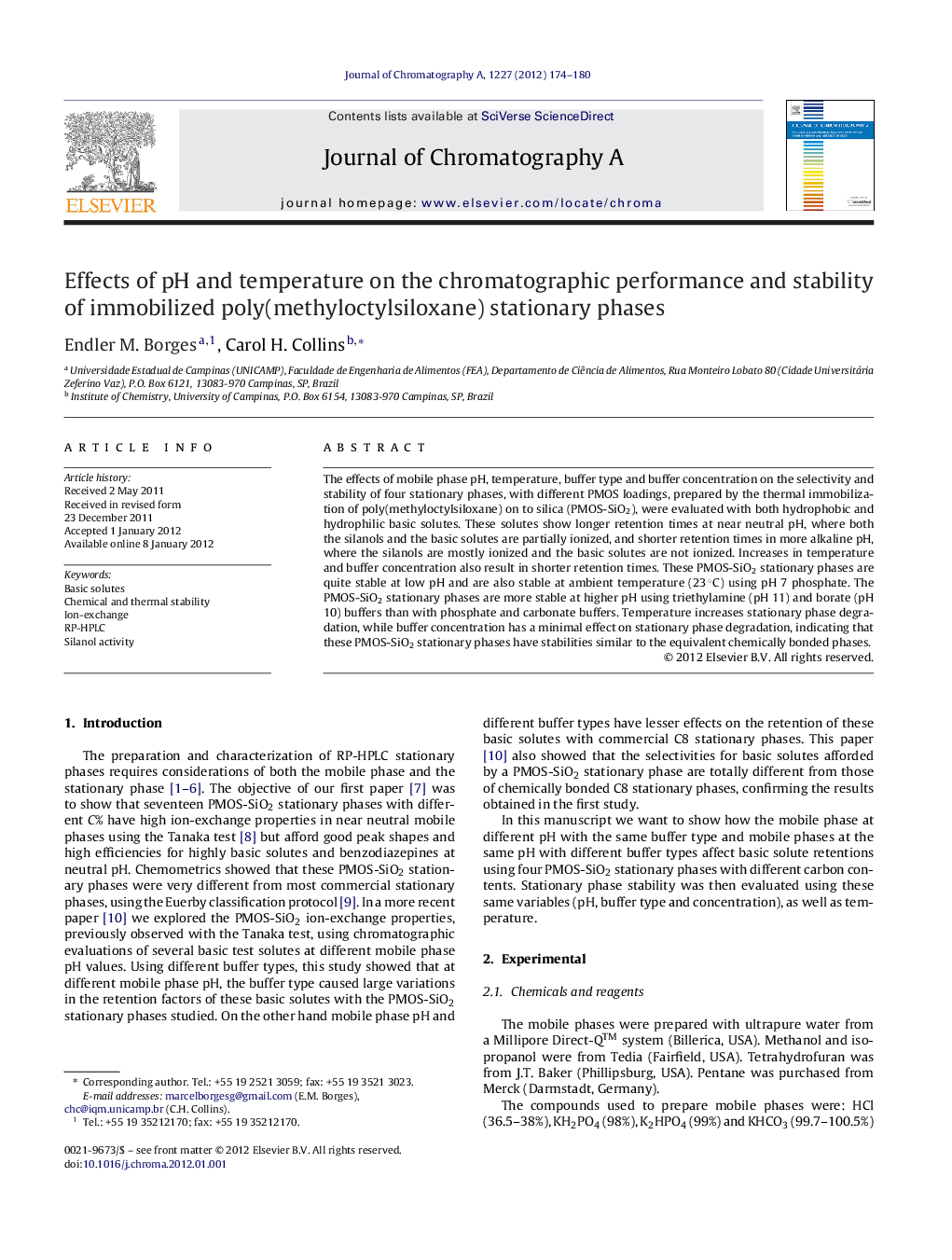| Article ID | Journal | Published Year | Pages | File Type |
|---|---|---|---|---|
| 1202856 | Journal of Chromatography A | 2012 | 7 Pages |
The effects of mobile phase pH, temperature, buffer type and buffer concentration on the selectivity and stability of four stationary phases, with different PMOS loadings, prepared by the thermal immobilization of poly(methyloctylsiloxane) on to silica (PMOS-SiO2), were evaluated with both hydrophobic and hydrophilic basic solutes. These solutes show longer retention times at near neutral pH, where both the silanols and the basic solutes are partially ionized, and shorter retention times in more alkaline pH, where the silanols are mostly ionized and the basic solutes are not ionized. Increases in temperature and buffer concentration also result in shorter retention times. These PMOS-SiO2 stationary phases are quite stable at low pH and are also stable at ambient temperature (23 °C) using pH 7 phosphate. The PMOS-SiO2 stationary phases are more stable at higher pH using triethylamine (pH 11) and borate (pH 10) buffers than with phosphate and carbonate buffers. Temperature increases stationary phase degradation, while buffer concentration has a minimal effect on stationary phase degradation, indicating that these PMOS-SiO2 stationary phases have stabilities similar to the equivalent chemically bonded phases.
► Immobilized polysiloxane stationary phase with mixed mode characteristics. ► Effects of different buffers and different pH. ► Stability in neutral, acidic and basic solutions.
